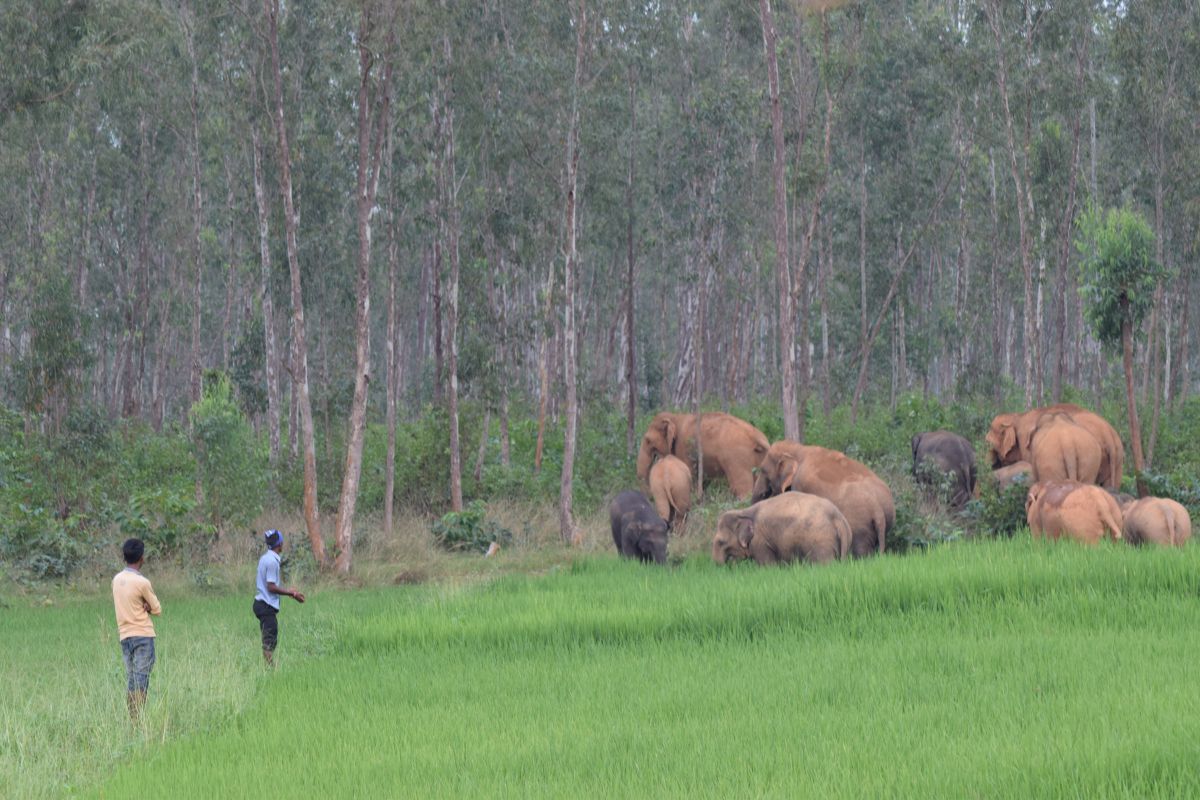Odisha, home to 1976 elephants, holds the dubious record of the maximum number of human deaths among all states despite being home to a lower number of elephants compared to Karnataka, Assam, Kerala and Tamil Nadu.
Human Kills in Odisha by marauding pachyderms have got the better of last year’s record after a woman- Ituwari Bhadra- was trampled by a tusker yesterday at Usumundi under Bonai Forest Division of Sundargarh district.
Advertisement
With the latest incident of man-elephant conflict, as many as 149 humans have been killed in 249 encounters while 122 have been injured.
“The state Forest Department is simply clueless on handling this tragedy despite engaging a private consultant 8 years (2016) ago at a cost of Rs.3.67 crores to prepare a plan for wildlife conflict mitigation”, said Biswajit Mohanty, Secretary, Wildlife Society of Orissa.
Odisha has 1,976 elephants, compared to Karnataka’s 6,049, Assam’s 5,719, Kerala’s 3,054 and Tamil Nadu’s 2,761.
Between 2019-20 and 2021-22, 1,579 people were killed in the country in 3 years by elephants, the environment minister said in the Lok Sabha last year.
Odisha topped the list with 322 deaths, followed by Jharkhand (291), West Bengal (240), Assam (229), Chattisgarh (183) and Tamil Nadu (152). Odisha had recorded 148 human deaths in 2022-23, which was the highest for the year in India.
The human kills per 100 elephants over three years is 18 in Odisha ; compared to Assam human kills of only 4 per 100 elephants
Since 2019-20, human kills by Elephants rose sharply crossing 115. Since then, the Human casualties have been on the rise consistently crossing reaching all time high of 149 in 2022-23.
Of the 149 human deaths, Dhenkanal, which has suffered most in the Human-Elephant Conflict in Odisha since the last ten years, recorded 31 human kills, followed by Angul – 24 human kills, Sundargarh – 22, Keonjhar – 18 , Mayurbhanj – 10, Sambalpur – 8 and Khurda – 7.
Odisha has lost 392 elephants in the last 5 years while 137 unnatural deaths were reported as per forest department’s statistics. The reasons for as many as 94 elephant deaths could not be ascertained due to decomposed bodies.
The jump in cases of human elephant conflict could be attributed to a multiplicity of factors with the primary factory being the human interference in elephant habitats, Mohanty pointed out.
The Rengali canal network in Angul and Dhenkanal district has disrupted age-old movement paths and corridors of the local elephants sparking off rampant attacks on villages and raids on crop fields leading to unfortunate human deaths.
There are few crossing bridges over these canals as a result of which elephants are trapped in small pockets and are forced to climb up steep high incline walls of canals.
There has been a ten-fold growth in quarries and industries in Dhenkanal district as per satellite imagery of 2011 to 2021 which has strong correlation with jump in human deaths.
Rungta Mines steel plant at Tarkabeda in Hindol spread over nearly 3,000 acres has cut off movement paths. It adversely impacted locals and resulted in human deaths due to elephant deaths.
We had drawn the attention of the Government seeking initiation of immediate steps to be taken to control illumination by the plant to ensure easy movement of elephants. However, the forest department has failed to act, Mohanty noted.
The widespread felling of palm trees that provide fodder to elephants in three months of monsoon has also affected their food needs of elephants who march to croplands, resulting in frequent outbreak of human elephant conflict, Mohanty concluded.











